- News
- Reviews
- Bikes
- Accessories
- Accessories - misc
- Computer mounts
- Bags
- Bar ends
- Bike bags & cases
- Bottle cages
- Bottles
- Cameras
- Car racks
- Child seats
- Computers
- Glasses
- GPS units
- Helmets
- Lights - front
- Lights - rear
- Lights - sets
- Locks
- Mirrors
- Mudguards
- Racks
- Pumps & CO2 inflators
- Puncture kits
- Reflectives
- Smart watches
- Stands and racks
- Trailers
- Clothing
- Components
- Bar tape & grips
- Bottom brackets
- Brake & gear cables
- Brake & STI levers
- Brake pads & spares
- Brakes
- Cassettes & freewheels
- Chains
- Chainsets & chainrings
- Derailleurs - front
- Derailleurs - rear
- Forks
- Gear levers & shifters
- Groupsets
- Handlebars & extensions
- Headsets
- Hubs
- Inner tubes
- Pedals
- Quick releases & skewers
- Saddles
- Seatposts
- Stems
- Wheels
- Tyres
- Health, fitness and nutrition
- Tools and workshop
- Miscellaneous
- Tubeless valves
- Buyers Guides
- Features
- Forum
- Recommends
- Podcast
news
“Not one single helmet…”: Motorists slam cycling “people carrier” image as “needlessly putting your family in danger”; “Why is the right at war with cyclists?” asks Guardian columnist – as GB News launches latest anti-cycling poll + more on the live blog
SUMMARY
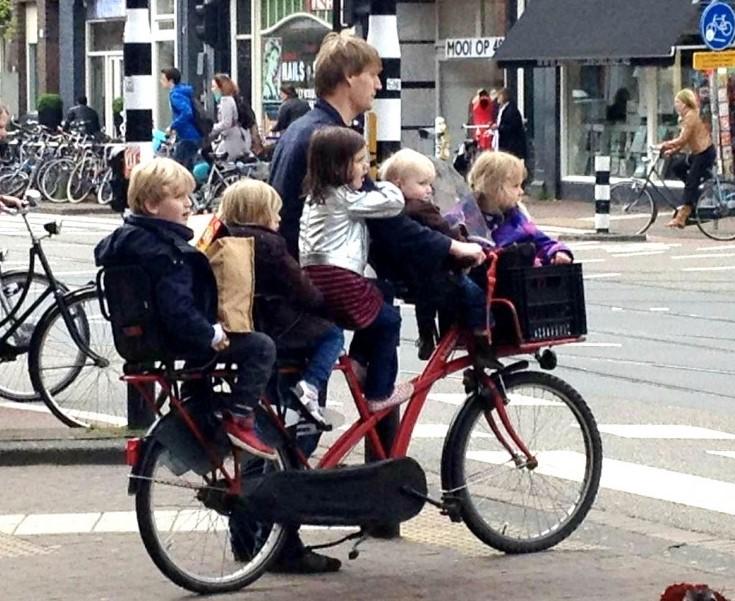 Dutch cycling 'people carrier' (Jon Burke)
Dutch cycling 'people carrier' (Jon Burke)26 March 2024, 09:04

“Not one single helmet…”: Motorists slam “deathtrap” cycling ‘people carrier’ image as “needlessly putting your family in danger”
I know it’s not something that often needs proving, but one quick and easy way to gauge the extent to which the Netherlands’ cycling culture is much more advanced than the UK’s is to post a photo on Twitter of an everyday Dutch cyclist and their family going about their business… and sit back and enjoy (or gaze in horror) at the replies.
Well, for some reason, that’s exactly what former Hackney councillor and transport chief Jon Burke did yesterday:
Please enjoy this People Carrier…😍 pic.twitter.com/CXcB5pfvF7
— Jon Burke 🌍 (@jonburkeUK) March 25, 2024
And the response?
“Needlessly putting your family in danger,” wrote on blue-ticked Twitter user.
“Clearly not safe,” said another.
“No helmets too, how safe.”
“Looks very dangerous.”
“No helmets on the kids, an f-ing disgrace.”
“Five kids, no helmets. That person should be arrested.”
“Deathtrap.”
“Imagine going out with a bloke like this. Wet flannel comes to mind,” UKIP WAG Jo Marney helpfully added.
And finally… “No helmets and instant death if hit by anything. I’ll stick with my extremely safe SUV thanks. Which also works in the rain…”
Gammon baiting par excellence pic.twitter.com/7OL5H8JBCg
— Real Gaz on a proper bike: gazza_d [at] toot.bike (@gazza_d) March 25, 2024
Of course, away from ‘super safe’ SUV-land, others longed for a world (or country) in which that kind of photo is viewed as normal.
“Beautiful photo in a proper city,” wrote American Fietser. “Having said that, my condolences on your comment section from all the nitwit reply-guys.”
Same.
“By reading the comments I get that not many knows how cycling works in the Netherlands,” added Xorin. “This picture is not something out of the ordinary there, is the norm.”
“All cities should be safe to ride like this,” wrote CGrift.
“Meanwhile I’m dressed in high vis with flashing lights, hoping to make it home every day to my family.”
26 March 2024, 10:55
“Were you in a velodrome?” Motorist widely scorned for claiming that “almost all” cyclists in the Netherlands wear helmets
I was in the Netherlands last fall, the number of bicycles astounded me. But one thing I did notice is that almost all of them, including every child I saw, were wearing a helmet.
— Steve (@PatheticPutter) March 25, 2024
Oh, Steve.
It’s one thing to argue – like Twitter user Steve did on this morning’s live blog story – that our Dutch ‘cycling people carrier friend’ should be arrested for failing to put helmets on his five children, it’s another thing entirely to make a claim that even someone with only a passing knowledge of the Netherlands’ cycling culture would know is demonstrably, and ludicrously, false.
After Glasgow Fietser responded to Steve that he would be forced to “arrest almost the entire population of the Netherlands” for failing to wear a helmet, our determined, and seemingly reality challenged, social media user replied:
I was in the Netherlands last fall, the number of bicycles astounded me. But one thing I did notice is that almost all of them, including every child I saw, were wearing a helmet.
Hmmm…
Unsurprisingly, that head scratching claim earned Steve an always fun context note under his tweet, alerting readers that “87 per cent of cyclists in the Netherlands do not wear a helmet”.
Along with quite a few hilarious retorts from baffled cyclists...
“Were you in a velodrome? We’ve cycled around major parts if the Netherlands and only racing cyclists wear helmets,” wrote Jon.
Nah, you’ve made that up. Why lie?https://t.co/BOh3E4nmHT
— Jon Burke 🌍 (@jonburkeUK) March 25, 2024
“I live in the Netherlands and can honestly say that nobody wears a helmet, except racing cyclists and maybe some toddlers that are learning,” added Aernout. “I personally and none of my friends have ever worn one.”
(Rather brilliantly, stubborn Steve replied to Aernout with “I saw what I saw”.)
“I have toured by cycle in the Netherlands for 60 years and the only time I’ve seen helmets worn was in road races and a group of tourists getting off the Schoonhoven ferry once,” said Bill.
I don’t think so, I go there most months and I have yet to see anyone, other than serious cyclists riding at pace, with a helmet on. For example the chap riding this rocked up in jeans, tee shirt and flip flops for a few beers with his friends. pic.twitter.com/uMmOwC5Gd4
— Jonathan Roberts🇺🇦🌻🚴♂️ (@jono_pce) March 26, 2024
“Steve, that’s amazing. How did all the helmet-wearing cycling people in the whole of Nederland happen to follow you around on your trip?” asked Tim. “Most visitors to NL note the absence of helmet wearing, so it’s quite astounding that you experienced the very opposite.”
Better luck next time Steve…
26 March 2024, 16:52

More bad luck for Visma-Lease a Bike as Dylan van Baarle set to miss Dwars door Vlaanderen due to illness
The bad luck keeps piling up for Wout van Aert ahead of the Tour of Flanders and Paris-Roubaix, after key Visma-Lease a Bike teammate Dylan van Baarle was ruled out of tomorrow’s Dwars door Vlaanderen – the final warm up race before De Ronde on Sunday – with illness.
Van Baarle is the latest rider added to Visma’s increasingly long classics injury and illness list, with Christophe Laporte facing a race against time to be fit for Paris-Roubaix due to a saddle sore, Tiesj Benoot injuring his ribs during the E3 Saxo Classic, Jan Tratnik crashing at Gent-Wevelgem, and Per Strand Hagenes breaking his nose in a crash at E3.
Van Aert, meanwhile, will be hoping his bad luck is confined to his untimely crash on the Paterberg at E3, which ripped up fans’ pre-race hopes of a head-to-head duel with perennial rival Mathieu van der Poel.
And with Van der Poel and Gent-Wevelgem winner Mads Pedersen in stunning form, Van Aert certainly can’t afford any more misfortune, to say the least.
26 March 2024, 09:54
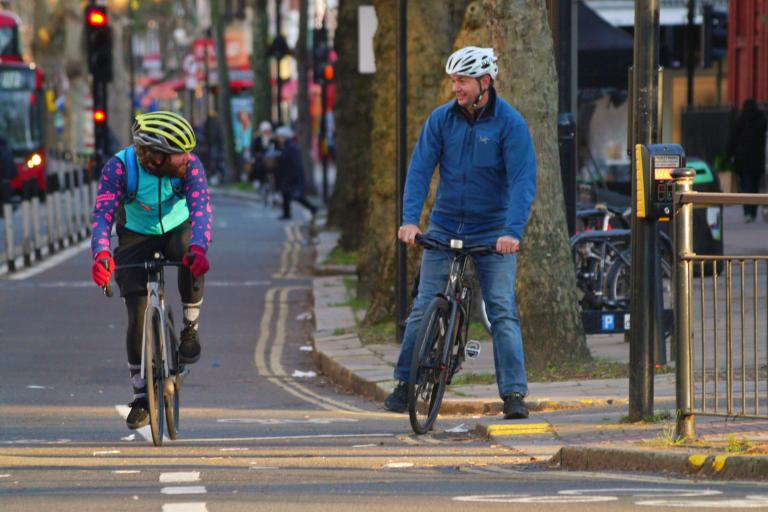
“Why is the right at war with cyclists?” asks Guardian columnist – as GB News launches latest anti-cycling poll
Ah, brilliant, more online cycling culture war discourse, just what we all need on a sodden March Tuesday…
Well, as we all digest the somewhat baffling replies to an image of a Dutch cyclist nonchalantly going about his business, the very nature of the anti-cycling agenda has been taken to task in the Guardian by columnist Zoe Williams.
In a rather refreshing national newspaper column focusing on cycling, pointedly titled “Why is the right at war with cyclists? We’re not ‘wokerati’ – we’re just trying to get around”, Williams points out that cycling is far from a “political act” perpetrated by a coherent and unified ideological group, despite the remonstrations of the likes of Farage, Barton, and the anti-LTN and ULEZ crowd.
Instead, Williams notes, “anti-cyclists are easy to categorise: they find the concept of the do-gooder infuriating and the idea of minding their own business untenable”.
“Cyclists, on the other hand, are impossible to categorise; you might just as well try to build a theory of mind for pedestrians,” she writes. “It’s not a political act; it’s fun.
“So, the polarisation is asymmetric. While one side is building an anti-green, anti-woke, anti-liberal architecture around transport initiatives, the other side doesn’t even cohere.
“Yet, this picture is turned on its head for the purposes of the ‘debate’, wherever it takes place, so that cyclists are the warriors, the lunatic fringe, the people who are coming for your way of life. In truth, I am medium-sure that most of us are just ambling about, wondering whether or not to invest in waterproof shoe covers.”
“Should we be paying more attention?” Williams concluded by asking. “Is there a lesson here about the concept of the wokerati, illustrating that it doesn’t exist, except in the imagination of the right, and that maybe the self-styled centrists of our wider culture should push back a bit harder, rather than getting popcorn and enjoying the show?
“I think so, yes. But what do I know? I am a bloody cyclist.”
Brilliant. And nice to see a positive spin on cycling within the context of the so-called culture wars in a newspaper for a change.
Meanwhile, as if to prove Williams’ point, GB News’ poll of the day yesterday asked its members: “Are cyclists making Britain’s roads a nightmare?”
Unfortunately (or fortunately, depending on your personal stance), you have to be a GB News member to find out the results of that particular, extremely balanced, survey. But I’m sure another one will come along sometime next week…
26 March 2024, 16:30
“The usual paint is not infrastructure planned by someone who has never ridden a bike”
26 March 2024, 15:47
Meanwhile, in Paris…
Paris saw bicycle usage double in the last 4 years. This follows a decade of investments in a safe, comfortable, cycling network & the announcement of an additional 180km of cycle paths & 130,000 bike parking spaces by 2026.
📍 Paris 🇫🇷
🎥 @EmmanuelSPV
pic.twitter.com/qd2x4xEKAj— Jonathan Berk (@berkie1) March 25, 2024
26 March 2024, 14:54
“The first duty of a local council is community safety”: Locals call for council to make roads safer after cyclist killed in collision with lorry driver
A silent vigil was held today in Bearsden, East Dunbartonshire, in memory of Una Brandreth, a cyclist killed in a collision with a lorry driver last week, as residents called on the local authority to make the roads safer for vulnerable road users, branding its failure to do so a “dereliction of duty”.
56-year-old mum Brandreth was riding her bike on Manse Road at around 8.10am last Tuesday when she was struck by a lorry driver, killing her.
“In the span of ten days there have been three serious traffic accidents in Bearsden involving pedestrians or cyclists being knocked down,” Angela Bellmooney, a Bearsden local who has launched a petition urging East Dunbartonshire Council to introduce increased safety measures in the wake of Una’s death, told Glasgow Live.
“On Boxing Day 2019, a family of six were mowed down on Manse Road with one person being killed. There will have no doubt been many more near misses.”
Bellmooney says that the one piece of safety infrastructure on Manse Road, a flashing warning sign instructing motorists that they are driving too fast, is covered by hedges and has not worked for two years.
She also stated that “mangled barriers” at nearby Bearsden Cross were “another reminder of dangerous driving and poor traffic management”.
“The first duty of a local council is community safety,” she says. “Parents and residents have repeatedly called on the council to take action but to date the response has been dismissive and inadequate.
“We pay our council taxes expecting better than this for our community but at the moment, our council’s inaction is simply a dereliction of duty.
“We urge East Dunbartonshire Council to take action and fully commit to making our streets and roads safer.”
26 March 2024, 14:26
The joys of painted, narrow contraflow cycle lanes
Having to get the attention of a driver on their phone so they don’t drive into me on the new King’s Road one-way system outside Richmond Park. Absolutely zero awareness.
This is not safe cycling infrastructure.@KingstonCycling pic.twitter.com/bi7eNtFOx5
— Ollie (@ohbee07) March 20, 2024
26 March 2024, 14:15
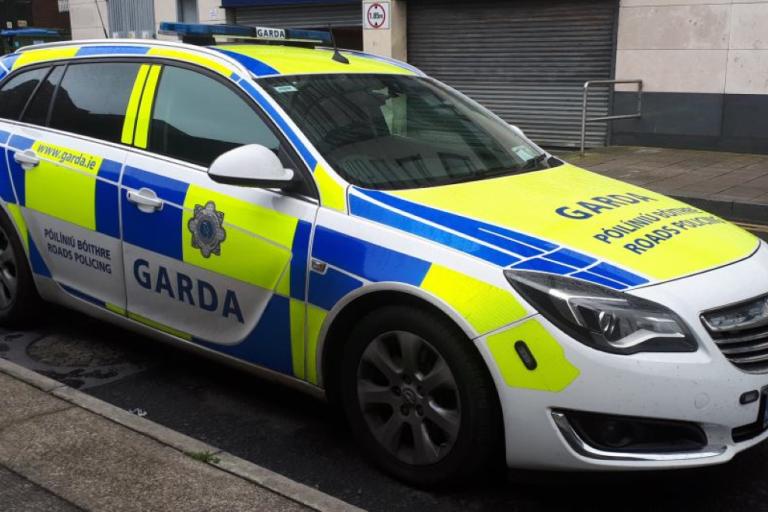
Cleared Irish police officer suspended for giving unclaimed bike to pensioner set to sue Garda for damages
An Irish police officer who was suspended for three years, and later cleared of wrongdoing, for giving an unclaimed €50 bike to a pensioner is intending to sue An Garda Síochána for damages, according to the Irish Independent.
The Independent also reports that Assistant Garda Commissioner Jonathan Roberts is currently studying a 1,000 page transcript from the recent disciplinary inquiry which eventually cleared the officer of wrongdoing, in a bid to ascertain the extent to which some members of police management changed their testimony during the investigation.
As we reported earlier this month, the unnamed Garda was cleared of five disciplinary charges, which led to a three-year suspension, at an inquiry after giving one of many unclaimed bicycles at his police station to a “vulnerable and isolated” elderly man who was struggling for transport during the Covid pandemic.
The unnamed garda faced a number of possible sanctions including reprimand, a fine, a caution, or even dismissal from the force, but received “significant support” from his colleagues, with his suspension pending investigation arising as he had not completed the necessary paperwork having given the bike to an “isolated” resident living in a rural area as a means of travelling to the shops during the pandemic.
Welcoming the decision, Garda Representative Association (GRA) General Secretary Ronan Slevin said the case had seen “good, decent community policing blown apart and relationships destroyed”.
“In essence I believe a sledgehammer of discipline was used to crack a nut and the reputation of a long serving member was damaged, his honesty questioned, and his livelihood threatened,” Slevin said.
26 March 2024, 13:25
The fastest bike on earth for the fastest rider?
26 March 2024, 12:51
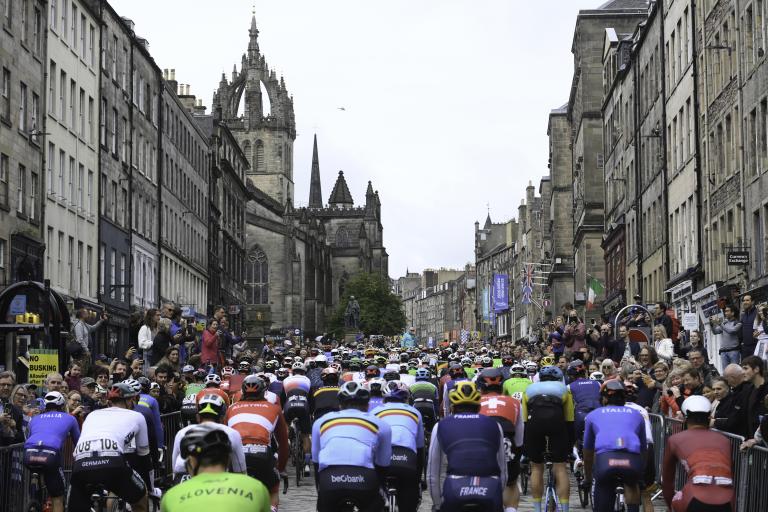
“Quite astounding” that cycling and walking contribute over £260 million to Edinburgh economy, former SNP House of Commons leader says
While in London certain politicians are dismissing active travel plans as “ridiculous virtue signalling”, up in Auld Reekie, one SNP MSP has praised the positive impact cycling and walking makes on the economy and the environment, as well as on the health of his constituents.
Describing Sustrans’ recent findings that active travel generates almost £263 million for Edinburgh and its surrounding regions as “quite astounding”, Edinburgh Central MSP, and former SNP House of Commons leader, Angus Robertson also noted that “1,314 serious long-term health conditions are prevented thanks to the health benefits of walking and cycling”.
Writing in the Edinburgh Evening News, Robertson praised Edinburgh City Council’s Net Zero targets for 2030, pointing out that 160,000 cars have been taken off the road every day by people instead choosing to travel by bike or on foot.
“I fully support these efforts, which align with the legacy commitments of the Scottish Government following the UCI Cycling World Championships in Glasgow, which also added £205m to the Scottish economy,” Robertson said.
“Indeed, through the Scottish Government’s million-pound Community Cycling Fund, we are already supporting sustainable cycling projects and local events to ensure as many communities across Scotland get involved.”
26 March 2024, 12:21
“I am pro cycling, but equally we must look at everybody else that uses the streets. And this war on the motorists must stop”
The Conservative Party’s London mayoral candidate Susan Hall – you know, from the backlash to the five-year-old cyclist almost being clipped by a driver video – has (shock) committed to reviewing cycling infrastructure if elected, and lashed out at cycle lanes that she claims are “virtue signalling” and cause “havoc” and gridlock for motorists.
Having launched her campaign in a cafe in Uxbridge on Sunday, Hall has again set her stall out as the candidate to end the so-called “war on motorists”, and despite claiming she is “pro any form of transport” questioned why “damn ridiculous” cycle lanes had been built when “we must remember there’s only two to three per cent of the population that are cyclists”.
Read more: > Conservative London mayoral candidate claims “virtue signalling” cycle lanes are causing “gridlock” and “havoc”, would review cycling infrastructure if elected to end “war on motorists”
26 March 2024, 11:56
Be afraid, be very afraid: Tadej Pogačar heads to altitude to prepare for Liège-Bastogne-Liège and Giro d’Italia
After completely decimating the field at the Volta a Catalunya last week, winning four of the race’s seven stages and beating second-placed Mikel Landa by almost four minutes, Tadej Pogačar is ready to knuckle down for some hard altitude training in Sierra Nevada, in a bid to boost the already ludicrous form he’s shown in 2024.
Even by his extremely lofty standards, this season has been a jaw-dropping one so far for the UAE Team Emirates leader.
Kicking off the season with that 80km solo raid for the history books at Strade Bianche, Pogačar then put on a typically attacking ride at Milan-Sanremo – foiled somewhat by his team’s poor positioning at the foot of the Poggio – before nabbing third in the sprint.
His week in Catalunya, meanwhile, was utterly devastating, turning the Volta’s tough mountain stages into glorified training rides and even bagging that iconic final stage in Barcelona in the sprint (while sparking a wave of social media debates on whether such domination is boring for fans).
Of the nine race days he’s started in 2024, the Slovenian’s results have been: 1, 3, 2, 1, 1, 25, 31, 1, 1 (and you can throw in the Volta’s GC and points and mountains classifications too).
And now, rather frighteningly for his rivals, Pogačar is belatedly joining the altitude party – one already attended by Jonas Vingegaard, Remco Evenepoel, and Primož Roglič this season – for some intensive training high in the mountains ahead of his next big goals: a bid to regain his crown at Liège-Bastogne-Liège and a first ever crack at the Giro d’Italia, the first phase of his Giro-Tour double attempt.
“I’m going to Sierra Nevada today. I stay there for almost three weeks, and then to Belgium, one week of a little rest, and then after, the preparations for Liège-Bastogne-Liège and the last preparations for the Giro d’Italia itself,” the 25-year-old told RTV SLO.
“This start to the season and the performance shows that I am in great shape and on track for the Giro-Tour. I already confirmed my good form at Strade Bianche and Sanremo, but this was a very different course [in Catalunya]. Lots of climbs and descents. The whole week was extraordinary, not only for me but for the whole team.
“I’m in better shape, at least when it comes to feeling good on the bike. I’ve taken another step forward to enjoy my bike even more, and I go out every day with a smile on my face. I don't mind doing intervals. It’s not all about the numbers, it’s also about feeling really good.”
Be afraid, be very afraid…
26 March 2024, 11:27
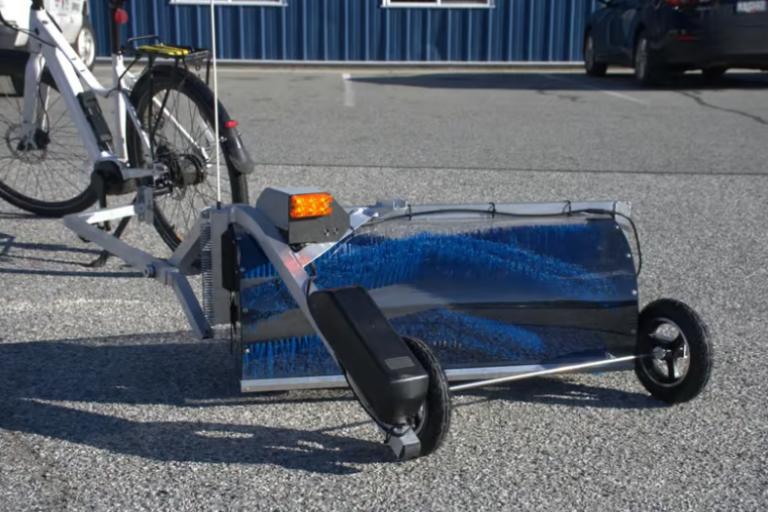
Are dirt and debris-filled cycle lanes set to become a thing of the past? Motorised Bike Lane Sweeper trialled in US and Canada
Here on the live blog, I’ve lost count of the number of times we’ve featured cycle lanes – often located right beside pristine roads – filled with branches, dirt, and debris (oh, and plenty of potholes and parked cars too), as part of our ongoing, never-ending series, ‘Why don’t cyclists use the cycle lanes?’
But one of the many reasons used for the often depressing state of protected bike lanes – that sweeper vehicles are too wide to clear them properly – may soon be a thing of the past, in the US and Canada at least, after cyclists Pierre Lermant and Cedric Eveleigh worked together to create the Bike Lane Sweeper, a device towed by a bike sweeping up and collecting debris.
“Although we are lucky in the Bay Area, and many streets/roads have bike lanes, they tend to accumulate debris pushed to the side by the main car/truck traffic, making them unpleasant to ride and puncture-prone,” California-based co-creator Lermant told New Atlas.
“I thought to myself one day during Covid, ‘Wouldn’t it be nice if we could come up with a sweeper attached to a bicycle to clear the bike lanes’, and the project was born, about three years ago.”
After building a prototype, Lermant was soon contacted by Canadian mechanical engineer and mountain bike drivetrain expert Cedric Eveleigh, who had recently joined a local group sweeping up bike lanes in protest at the lack of government interest in keeping cycling infrastructure clear.
“It was at these events that I started thinking about the idea of a bike lane sweeper, with a powered brush, pulled by bike,” Eveleigh says.
“I then Googled the idea and discovered Pierre, who had built proof-of-concept bike lane sweepers. I contacted him to offer help with engineering and manufacturing, and Pierre was keen to work together.”
The pair have since developed two versions of the e-bike battery-powered sweeper, one which sweeps debris off to the side and is intended for rural use, and a more urban-focused machine which collects rubbish in a bin.
The motor is wirelessly activated by a handlebar-mounted remote, while both sweepers feature a standard trailer hitch compatible with almost every bike. They are currently being tested by cycling campaign groups across the US and Canada at the moment.
“There are several possible business models that we’re exploring, including selling bike lane sweepers to non-profit volunteer-based groups (there have been three successful crowdfunding campaigns), selling them to municipalities, and offering sweeping as a service,” Eveleigh says.
“Debris often forces cyclists into car traffic, causes flat tires, or is simply unpleasant. This bike lane sweeper project was born out of a desire to remove debris from bike lanes to make cycling safe and enjoyable, getting more folks to ride bikes.”
Unfortunately, I’m not sure how well it would cope with parked cars blocking the bike lane…
26 March 2024, 10:30
Back in Black (and Orange): Wiggle returns… and so does the old orange logo
After their brief holding page hiatus last week, Wiggle and Chain Reaction Cycles’ websites are back open for business this morning – and it turns out that Frasers wasn’t too impressed with Wiggle’s controversial green rebrand last year either…
> Wiggle website relaunched following Frasers Group takeover (and the old orange logo is back)
26 March 2024, 09:30
“They weren’t able to find my address, but they found my bank account very quickly to block €400”
After obtaining a PhD, lecturing, and hosting a history podcast at Queen’s University Belfast, Ryan joined road.cc in December 2021 and since then has kept the site’s readers and listeners informed and enthralled (well at least occasionally) on news, the live blog, and the road.cc Podcast. After boarding a wrong bus at the world championships and ruining a good pair of jeans at the cyclocross, he now serves as road.cc’s senior news writer. Before his foray into cycling journalism, he wallowed in the equally pitiless world of academia, where he wrote a book about Victorian politics and droned on about cycling and bikes to classes of bored students (while taking every chance he could get to talk about cycling in print or on the radio). He can be found riding his bike very slowly around the narrow, scenic country lanes of Co. Down.
Latest Comments
- ACyclingGuitarist 1 min 59 sec ago
I ride to and from Manchester from where I am (just out of Bolton) and the standard of driving you see is shocking, from both a cycling and driving...
- Jimmy Ray Will 2 min 53 sec ago
What does your local MP think about this situation? Have you raised it with them? ...
- the little onion 14 min 43 sec ago
Easiest solution: mandate that all police officers MUST spend some time on patrol, in plain clothes, on bikes during rush hour. Only when they...
- Geoff H 25 min 55 sec ago
Nothing to do with any of the articles, but ...... https://www.majorgeeks.com/news/story/random_photo_electric_bike.html
- JRogerson 38 min 17 sec ago
I'd be cautious with the £10 per month TNT offering and your expectation of what you'll get. I suspect it will simply be access to the channels....
- jaymack 42 min 4 sec ago
You can prove anything with statistics, even the truth
- The_Ewan 49 min 11 sec ago
If they also have the abilty to switch from dipped to 'full beam' they'd be interesting to know about....
- old bod 2 hours 8 min ago
and for flying mosquitoes in ww2 films
- BPhillips 3 hours 48 min ago
Thanks for your thoughts David. Argos is looking a good bet.
- mdavidford 3 hours 59 min ago
I'm pretty sure this is at least the third time the BBC have had a story on this - not sure why they keep forgetting that they've covered it.
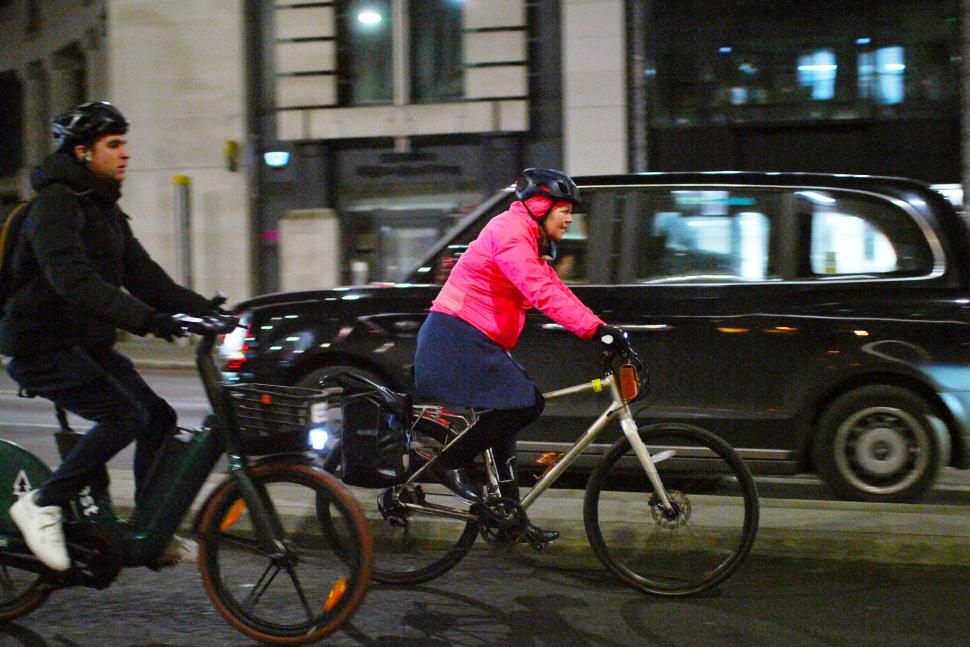

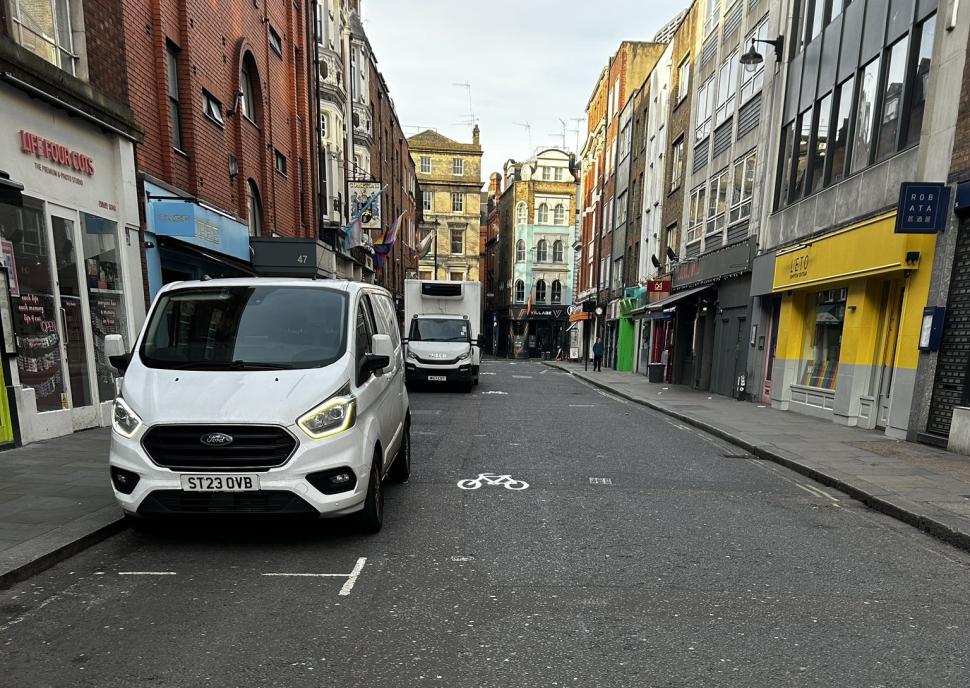

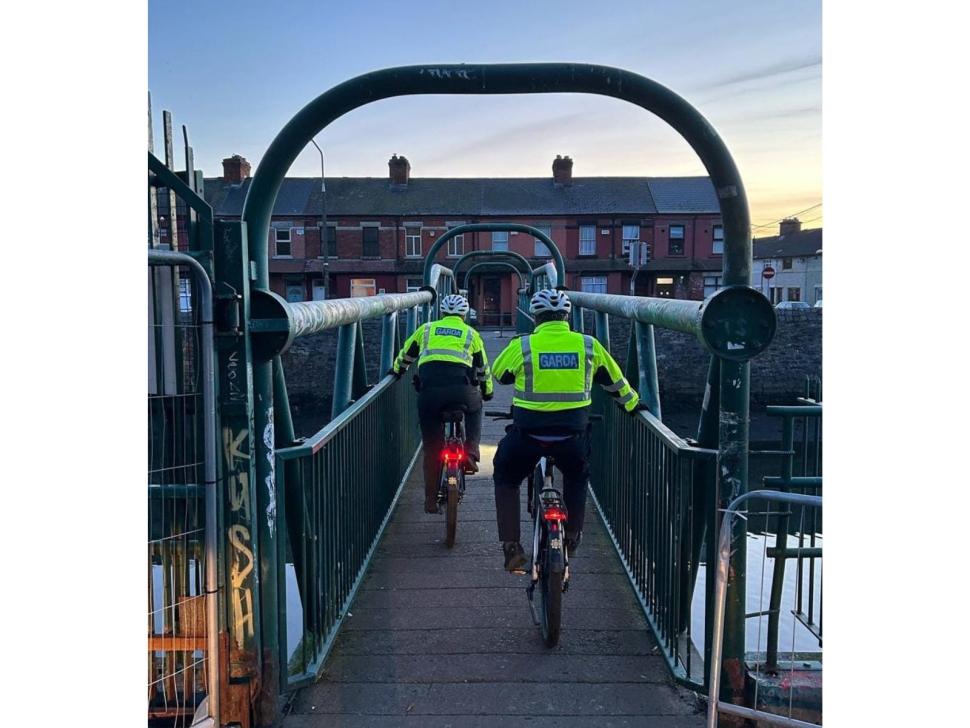

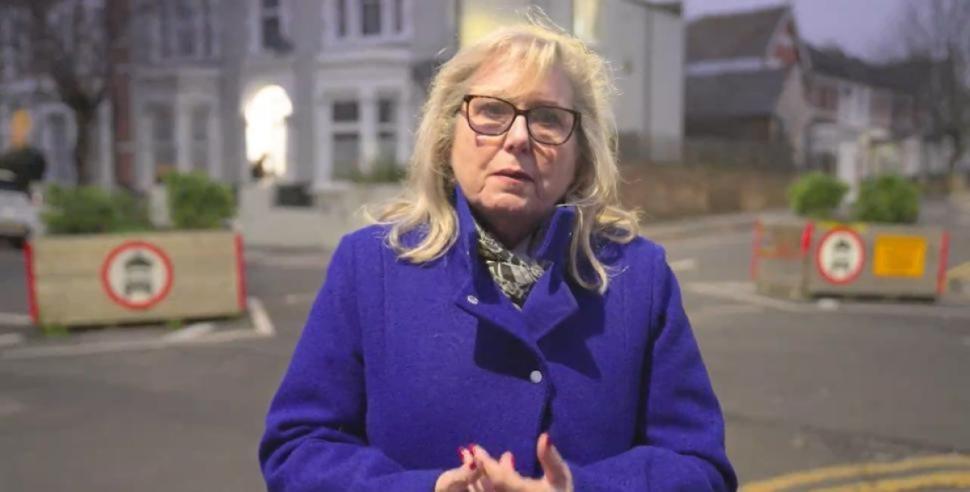
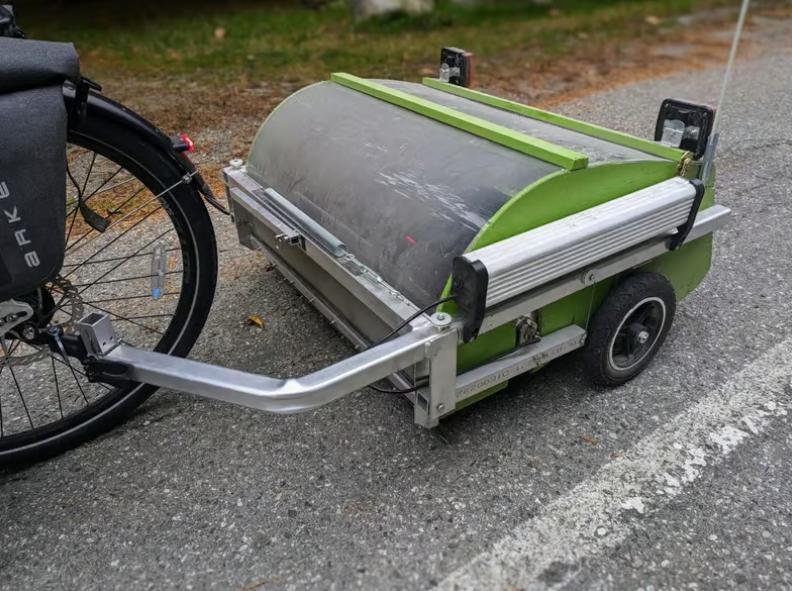

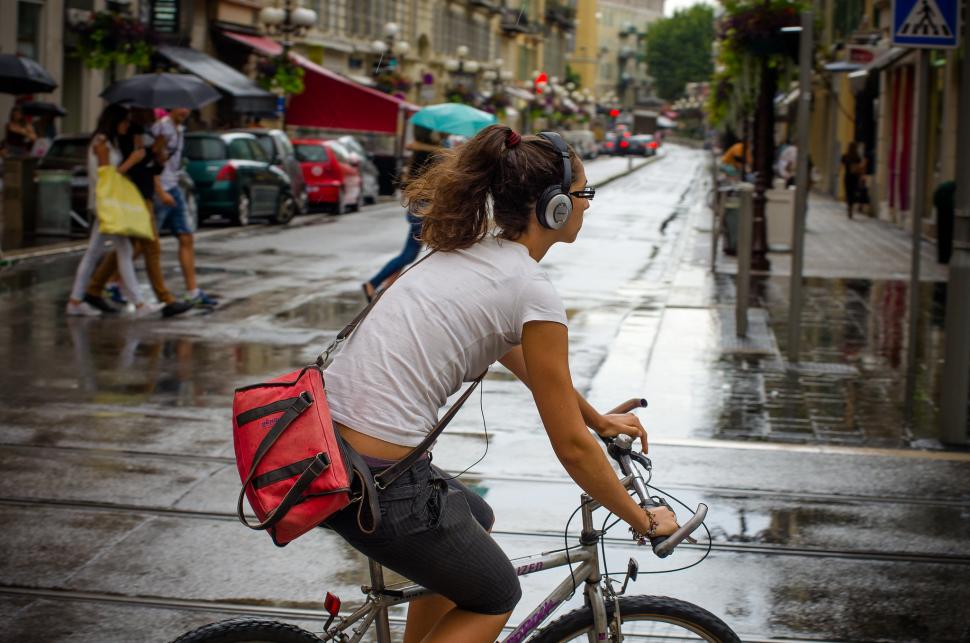
Add new comment
48 comments
children travelling in cars don't wear helmets - why the concern by motorists for the safety of cyclists? that's not normal, perhaps they believe that cyclists wearing helmets will turn a fatal accident that the motorist has caused into a minor injury accident and therefore they will receive a small fine or be let off and not a prison sentence.
I thought it was everyone else that are the snowflakes, they certainly don't waste any time in being offended by everything and anything then wang on about it for hours. I wonder whether these safety conscious idiots are simultaneously opposed to 20mph zones. I'm sure they have a reason for the flip flopping of attitudes and won't be shy in shouting down anyone that questions them.
I'm sure they have a reason for the flip flopping of attitudes and won't be shy in shouting down anyone that questions them.
Wear a helmet, don't wear a helmet
""Of course, away from ‘super safe’ SUV-land, others longed for a world (or country) in which that kind of photo is viewed as normal."
... for instance, the England of fifty years ago in which most people who drove motor cars were more aware of, and more considerate of, people on bicycles.
When they weren't drunk.
OTOH our trip to the past might still show positives around cycling. Perhaps more of those drivers cycled regularly for transport themselves - or had relatives that did? And there were definitely fewer drivers - so there were emptier roads Plus a greater proportion of journeys cycled - so drivers would be expecting to see cyclists.
EDIT - in fact, I think you really need to go back to the England of the 'fifties - nineteen fifties - or before, to get the full effect.
"And finally… “No helmets and instant death if hit by anything. I’ll stick with my extremely safe SUV thanks. Which also works in the rain…”"
I always wonder how these people can be the same species as me...
Or the comment was meant as a joke.
The "right"'s war against cyclists is rather like Putin's war (I believe we're now officially allowed to call it that) against Ukraine and the west. On the one side you've got a large group of people peacefully going about their business and on the other you've got a bunch of unhinged nutters who feel persecuted and threatened by the first group to the point that they believe the only way to ensure their own survival is by eliminating it.
Another brainwashed by the corrupt msm.
“Why is the right at war with cyclists?”
Because everything they've done over the past fifty years has been proved wrong*, but they won a bye-election by lying about LTNs and cyclists, so it's all they've got. When the entire basis for your party has been shown to be utter bolox, you've got to shout very loud and point at something else that people love to hate. They can't point at immigrants or women, but they can lie about cyclists because they are one of the out groups it's still not illegal to attack.
*Name a policy of Maggie's which has worked? I'll wait.
One of the ironies at the moment is that a lot Conservatives bang on about Johnson and going back to the 2019 manifesto, whilst also wanting to abandon net zero and active travel policies, both of which were in the 2019 manifesto.
Enterprise Allowance Scheme, but the success wasn't intended
I hate you.
It's particularly amusing as the EAS encouraged the types that Thatcher and the right-wingers absolutely did not want to be encouraged. At least we got Britpop out of it.
https://www.theguardian.com/culture/2023/jul/26/thatcher-enterprise-allowance-scheme-artists-rachel-whiteread-jarvis-cocker-britpop-ybas
I don't want you to think I'm defending her on anything else, and I'm not sure if it counts as a policy, but she was pretty much the first world leader to acknowledge and warn people about climate change and advocate for the need for international action. She gave a speech to the UN about it in 1989.
Something the anti-science right-wingers forget as they tend to their Maggie shrines. Along with her support of the single market.
they lied about LTNs
they won the by-election
It is not know whether lying about LTNs was the main reason for the result.
There was an article in the Grauniad (IIRC) yesterday about how Right to Buy has led us to the current situation. People complain about councils not building new social housing, but then a newbuild social housing estate which won awards has all been sold off under RTB within three years of opening. Why would councils bother building any housing when they'll be forced to sell it? Was this an intended consequence or an unintended consequence of RTB?
I'd go for "intended". Property owners benefit when the supply of housing dwindles and they can charge much more for rent.
Which makes it weirder how the big housing companies are always saying they'd definitely build more to help the national housing shortage, if only those pesky planning regulations / zoning didn't get in the way.
Allow building on green belt land and they'd build luxe houses there, but overall wouldn't build any more houses than they would anyway.
The problem isn't being forced to sell it.
Its being forced to sell it at a discount AND not getting the money to allow for replacement construction...
The Independent also reports that Assistant Garda Commissioner Jonathan Roberts is currently studying a 1,000 page transcript from the recent disciplinary inquiry.......
A thousand pages? for giving/loaning a 50 euro bike to a man in need? How much did that cost and how could it possibly be justified? Someone needs disciplinary action but it isn't the garda who gave him the bike.
Conservative MP Robert Halfon announces he is stepping down at the election - https://twitter.com/halfon4harlowMP/status/1772654962872398035
Why's that relevant here? Because he was one of Mr Fair Fuel Howard Cox's Parliamentary supporters.
"Mr Halfon's resignation as skills, apprenticeships and higher education minister, was unexpected but his letter to the prime minister was warm, saying he believed there was "quiet admiration" for Mr Sunak across the country."
I am not sure which country Mr Hafon lives in because there is sure as shit not a quiet, loud or any other volume, admiration for Rishi Sunak in any of the countries of the UK. He is believed to be unfit for the job by people from across the political and social spectrum, its one of the only things most people in the UK actually agree on.
RE: bike lane sweeper.
Had that idea myself before - as have others (e.g. Dave McGraw's home made bike snowplow). Early days but a) looks like it wouldn't be adequate for the damp leaf-mold and mud plastered over my local shared use paths in Edinburgh* plus fairly chunky branches after wind and b) for anything much less than that a simple brush towed / pushed would probably suffice.
Going against the tide but I feel this is an example where it's sometimes "easier to solve with more / new technology" (even fairly basic things like this) which would be overall better done via a more communal effort. Having local authorities involved is certainly important (even if that's occasional). But the ideal would be having community groups getting involved in maintenance (e.g. like Sustrans encourage). This happens in many places, often informally. (I've seen others also carrying kit for e.g. glass clearance - unless they were off curling?). That can bring lots of side-benefits like feeling of stewardship of these resources, social interaction - and indeed better maintenance (even stuff that can't be fixed will get more effectively reported).
Unfortunately getting reliable maintenance tends to require more formal organisation - and setting up, running and keeping groups going requires effort.
* Former railway lines through some deep tree-lined cuttings.
Having said - I'd certainly be up for giving one of these a go! If someone living near the paths would be prepared to store these I bet you could get a roster of Edinburgh cyclists happy to add doing a few miles around the paths to their routines.
Again - perhaps we're spoiled in Edinburgh as a) we have a "spine" of completely motor-traffic free routes (albeit currently threatened by conversion to tram routes) and b) groups and individuals do e.g. litter clearing and c) these are maintained more or less by the council - fallen trees are removed reasonably quickly, vegetation is pruned maybe more than once per year, they're salted in freezing weather - although not using the best method, brine...
Getting it done regularly is important. If you wait for too many leaves to collect and start to break down and turn into a soggy, muddy, sludgy mass, more simple contraptions won't work, and only the most enthusiastic of supporters could clear more than a short stretch in one go.
As usual, the question is...how do they do this, in the Netherlands?
I haven't been for years and there are some Dutch residents who post here I think - so hopefully we'll find out!
I've mentioned winter (e.g. rock salt is really better for the drivers - and separate cycle paths can be easier to clear) already.
It's apparent that the cycle ways (and indeed footways) are seen as just as much a part of the "transport network" as the roads / railways. So presumably regular year-round maintenance will be scheduled by the local authorities [1]?
This actually begins with design - e.g. attention to drainage (of course, the Dutch have a reputation there - so can be allowed the occasional non-standard virtuoso design [2] [3]!) Very often Dutch cycle paths feature trees - and this is deliberate. So of course not only is the need to maintain these factored in but they're added in a way designed to minimises the effects of roots on the build environment.
For physical maintenance / renewal / updates the little I understand suggests there are some more major cultural / legal / organisational differences (e.g. which bodies are responsible for what, to whom) which mean that it might be harder to import how they do it there to the UK. In some cases that's more centralisation: so apparently there's a national database of underground infra and if you do some digging you're expected to notify the system! Does the same exist in the UK? When Edinburgh dug up the city for a tram line they clearly had little idea of what was under there and dealing with that added large sums to the cost / delays.
I reckon that bike would be even quicker if they put some wheels on it.
Ruin the aerodynamics though, and as for the weight...
Regarding non-cyclists' knowledge of cycling in the Netherlands...
I recently spoke to an acquaintance about issues with the "war between motorists and cyclists".
His view was that all cyclists/bikes should be registered etc to enable them to be traced in case of trouble/accidents.
I rolled my eyes and asked him if he knew which other (only) country in the world requires cycle registration (answer North Korea, as far as I know).
His answer: "The Netherlands"...
Pages